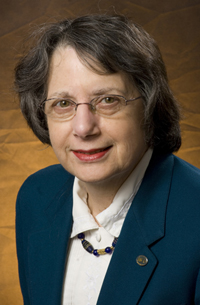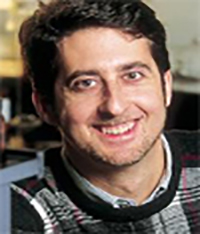
A Florida State University researcher who has blazed trails both in and out of the classroom is receiving an honor reserved for some of the top women in science.
Penny J. Gilmer, a longtime chemistry and biochemistry professor and science education researcher at FSU, has been elected as one of eight new fellows of the Association for Women in Science (AWIS) for 2008. The organization, which has some 3,000 members throughout the United States, is dedicated to “achieving equity and full participation for women in science, mathematics, engineering and technology.” (Learn more about AWIS at www.awis.org.)
“Being elected a fellow of AWIS means that my lifelong work to improve the status of women in science is recognized by my peers,” Gilmer said. “During my lifetime, the status of women has improved, in part by work like mine, but we have further to go for full participation.”
“This is a well-deserved honor for our friend and colleague,” said Joseph Schlenoff, chairman of the FSU chemistry department. “Professor Gilmer’s dedication to advancing the opportunities for women in science has resulted in a stronger, more diverse and simply better work force.”
A member of the FSU faculty since 1977, Gilmer’s pursuit of knowledge has led her in several directions. In the field of biochemistry, her research has involved studying cell-cell recognition events between immune T cells and their tumor target cells. Such research plays a critical role in understanding the chemical processes at work with autoimmune diseases and cancer—knowledge that one day could lay the foundation for new treatments or even cures.

“How can we expect K-12 teachers to teach science through scientific inquiry if they have never experienced true inquiry on their own?” Gilmer said. “Right now I have a grant with the Panhandle Area Education Consortium from the State of Florida to provide such inquiry experiences to 120 science teachers for grades 3 through 12.”
Another passion of Gilmer’s is working to increase opportunities for women in the science and engineering fields. To that end, she started the first AWIS chapter in Florida at FSU; the chapter remains active with graduate women and professional women in the area. On campus, Gilmer also is active with the Women in Math, Science and Engineering Living-Learning Community (www.wimse.fsu.edu), which seeks to increase the retention of female students in those fields by providing support, encouragement and guidance.
Gilmer and Sherry Southerland, an associate professor of science education at FSU, co-supervised a doctoral student, now Dr. Ajda Kahveci, who studied programs such as WIMSE to determine the factors that facilitate young women becoming scientists, mathematicians and engineers.
“We have both quantitative data, including retention rates in college, and qualitative data from such women undergraduate students that enhance our understanding of such factors to enhance their full participation—to bring them from the periphery toward the central discourse in their chosen fields,” Gilmer said. “In part, this is by encouraging them and providing resources such that they too can participate in scientific research.”
Finally, a key focus for Gilmer is the teaching of ethical issues in science in order to advance students’ understanding of responsible research and practices.
“Making students aware of the ethical issues in science opens them up to the process of science, with an understanding of the process of asking questions, determining the best methodologies to answer the questions, gathering of the empirical data, analyzing the results, and preparing the data for publication,” she said. “At any one of these stages, scientists must make ethical choices, making science a human activity and therefore making science more interesting, especially to women, who typically focus more on the human side of life.”




